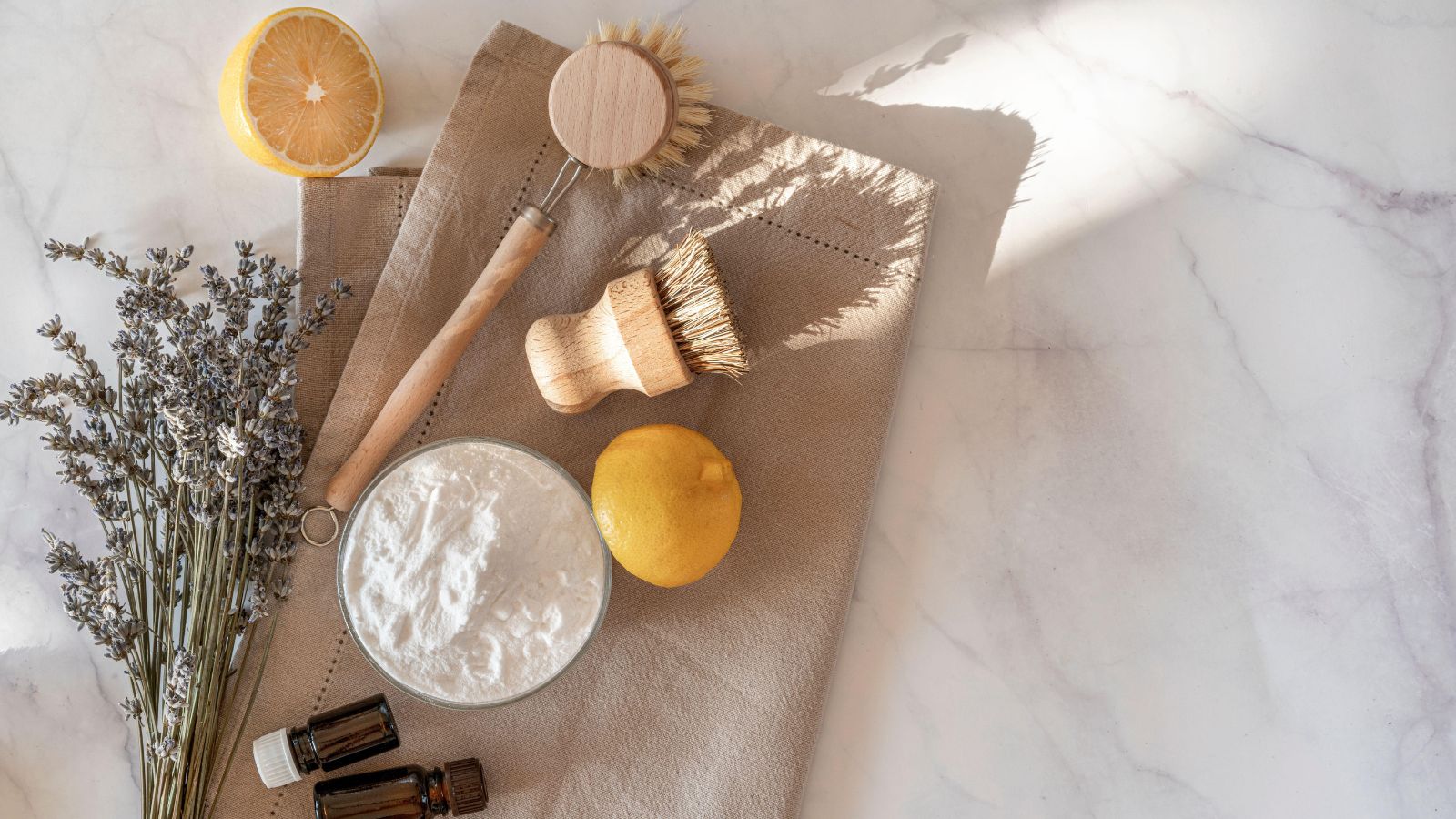
As a naturally-occurring cleaner, citric acid has many uses around the home. From shining up your bathroom fixtures to busting grease and grime in the kitchen, this mighty yet eco-friendly cleaner is affordable and effective.
But, there are some places around the house where citric acid should never be used. Due to it's abrasive nature, using it in powder form or in a water-based solution can cause irreparable damage to some surfaces, dulling countertops and tarnishing metals.
We've spoken to the experts for their citric acid cleaning tips, and a run-down on where to never use it around your home to avoid any disasters.
4 things to never clean with citric acid
1. Marble and stone surfaces
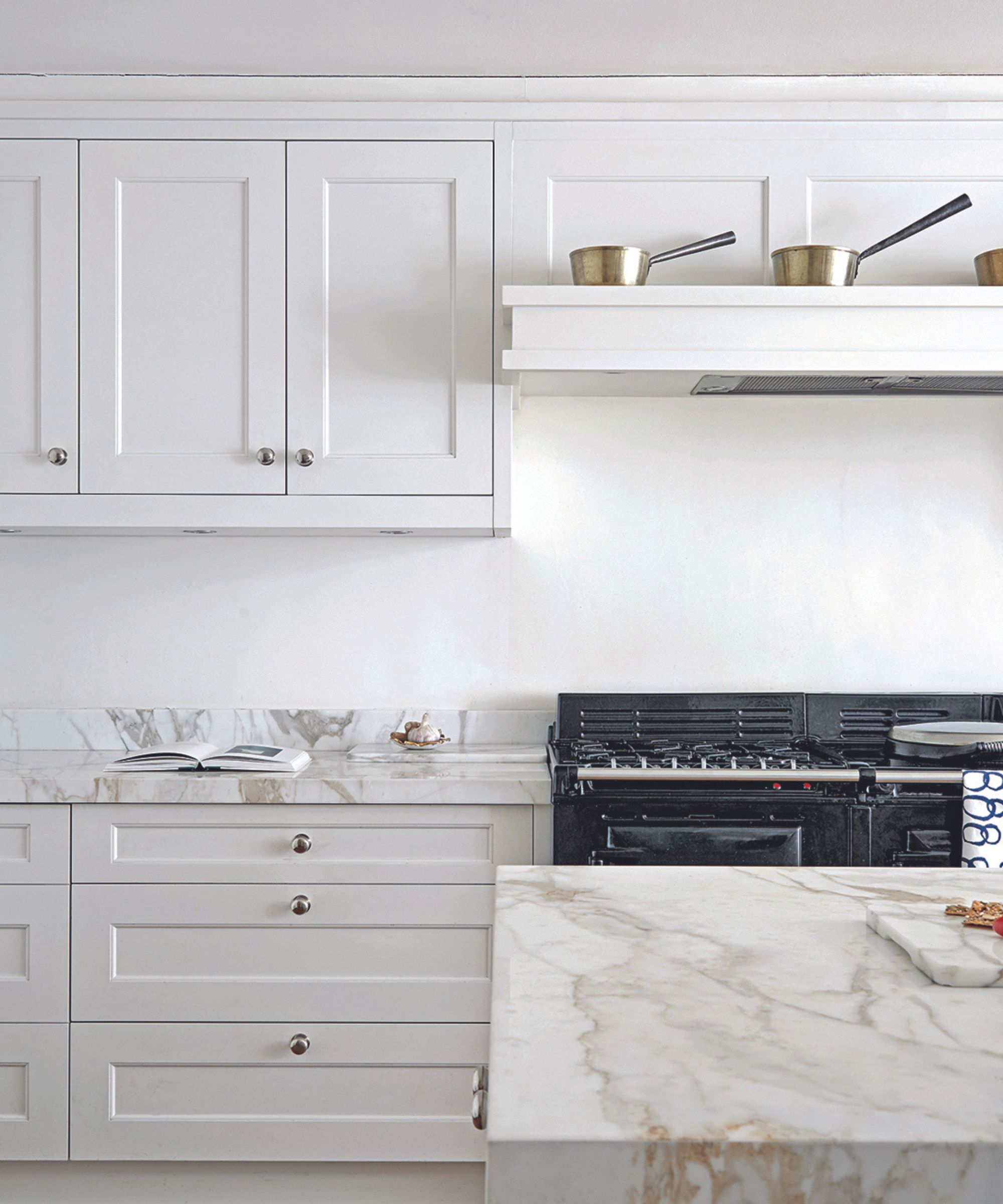
After making the investment, it's important to know how to clean marble countertops, as the last thing you will want to do is damage them by cleaning them incorrectly with citric acid.
'The problem here is that citric acid is highly acidic, so if used on marble or granite it will effectively eat away the top surface layer of these natural stones, causing etching and dull spots — not good!' says Daniel Brown, CEO of Handy Cleaners. 'Instead use a pH-neutral cleaner specifically formulated for natural stone surfaces.'
Brown recommends using the Granite Gold Daily Cleaner available at Walmart for a 'safe option that won't damage your stone.' It's a best seller, with average ratings of 4.8/5 stars, and works effectively with a delicate, pH balanced formula, without phosphates or ammonia, to deliver a streak-free clean with a fresh, citrus scent.
2. Lacquered or urethane finished flooring
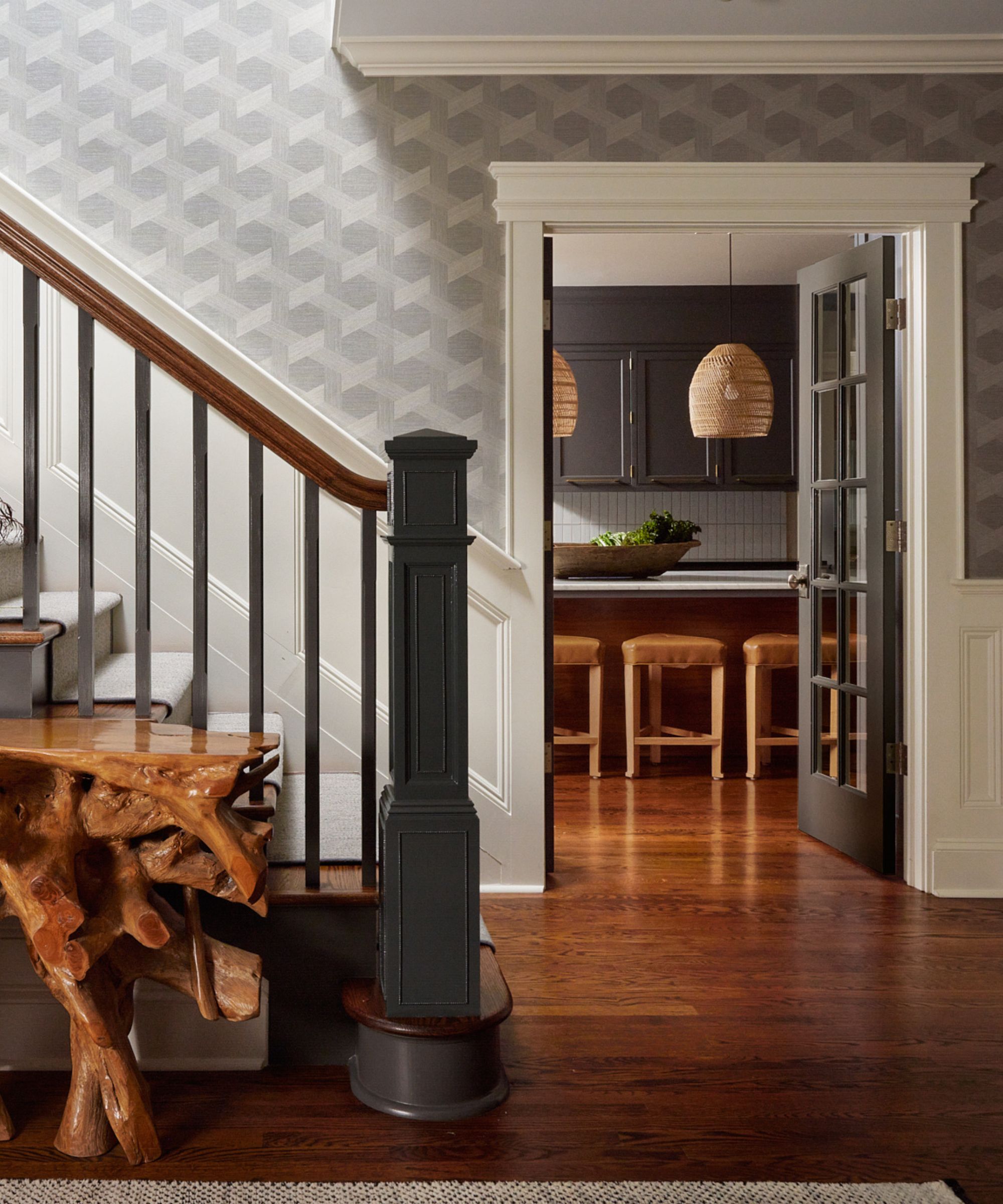
It can be difficult to know how to clean hardwood floors and much like marble and granite, using citric acid to clean any lacquered or urethane-finished flooring will leave dull spots and stains.
Francisco Romero, owner of Romero Hardwood Floors, has over 15 years of experience in the industry and regularly uses citric acid to clean and brighten wood floors. He would, however, never use it on any lacquered flooring.
'As a hardwood flooring expert, I would not recommend using citric acid on lacquered or urethane-finished floors since it can dull the finish over time,' he says.
Instead, use a specific hardwood cleaner, such as the Bona Hardwood Floor Premium Spray Mop available at Amazon, which has more than 1700 4.6/5 star ratings from happy shoppers. It's quick and easy to use, as it combines both the spray and a mop which is pre-filled with Bona cleaner. It's safe to use on all types of hardwood flooring and finishes.
3. Delicate clothing
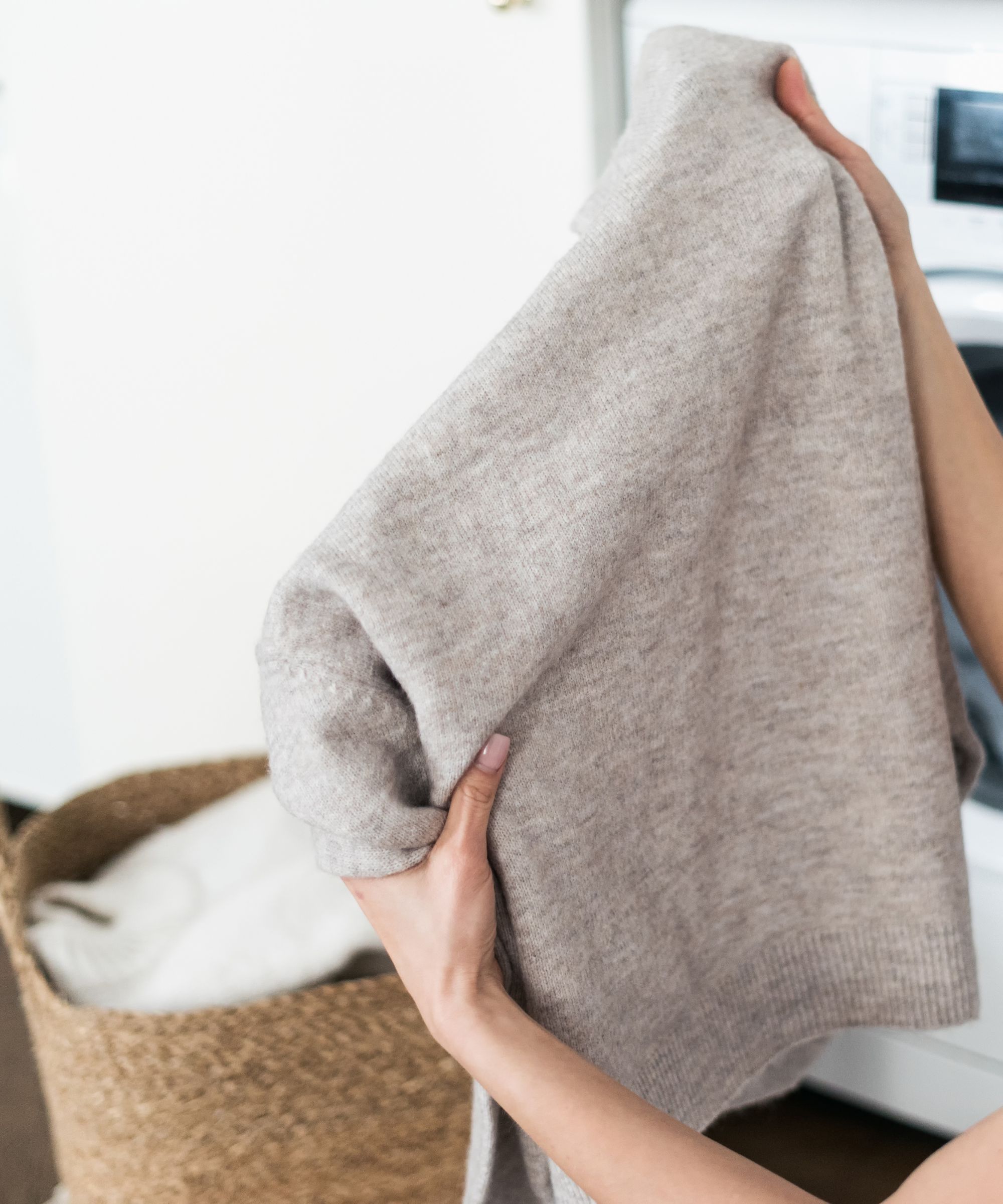
While citric acid can be used to get dingy whites white again, experts warn against using it to tackle your best delicates.
'I would caution against using citric acid on delicate fabrics or materials such as silk, wool, or leather,' says Logan Taylor, founder of Dazzle. 'The acidic nature of citric acid can damage these fabrics and cause discoloration.'
It's almost always better to handwash your delicates, or take them to a dry cleaner to be dealt with professionally. We recommend using a product such as the Woolite Delicates Hypoallergenic Liquid Laundry Detergent available at Walmart, which is suitable for both hand and machine washing, and won't cause any damage, such as fading, shrinking or stretching on your favorite delicate clothing.
It's suitable for use on a multitude of fabrics, so can be used all year round on wool in winter and silk in summer, as well as cashmere, cotton, satin and polyester.
4. Aluminium, copper and brass
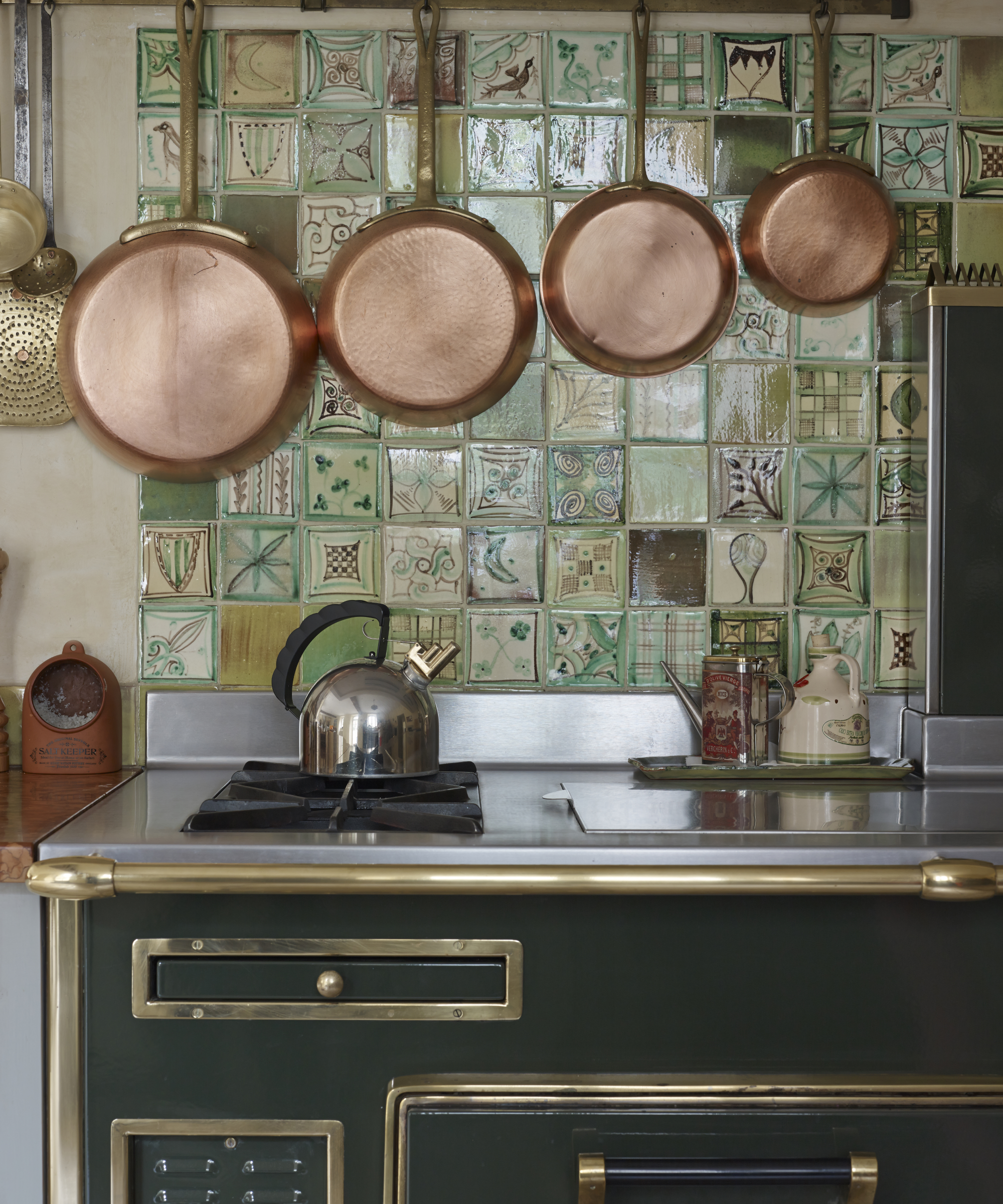
Aluminium, brass and copper make beautiful additions and features around the home, but cleaning them with citric acid is never advised.
'Citric acid should also not be used on aluminum, copper or brass since it will cause corrosion over time,' says Austin Jones, CEO of Millennium Facility Services, with over 30 years of experience.
In particular, while citric acid is an effective cleaner for stainless steel and burnt pans, cookware made of aluminium, or more decorative pans made of brass and copper, should not be cleaned with citric acid.
'Avoid using it on pots made from this metal because over time some degree of pitting may occur due to an interaction between dissolved aluminium ions and hydrogen produced during the reaction with citric acid – which can turn into corrosion pits later on,' says Brown. 'If in doubt stick with soap & warm water as usual when cleaning anything else made out of aluminum, brass or copper.'
To really clean copper pots and pans and make them shine like new, kits such as Twinkle Silver Polish Kit and Brass & Copper Cleaning Kit available at Amazon, can be used for effective, easy cleaning that won't tarnish. After application, simply leave to sit, rinse promptly and polish with a soft cloth for an enviable sparkle.
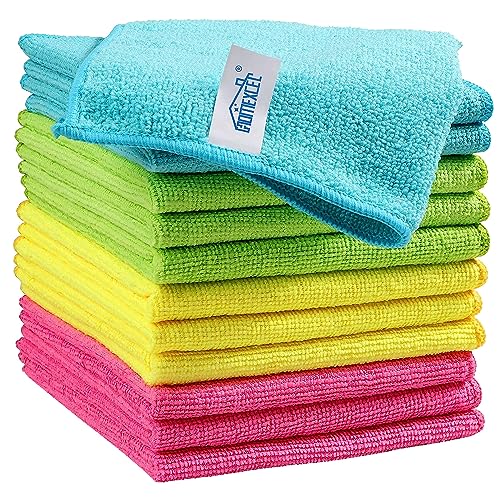
These microfiber cloths are soft and lint-free, made of 87% polyester and 13% polyamide, perfect for buffing dry with streak-free, scratch-free results. They also feature reinforced edges, so can be washed and re-used hundreds of times.
FAQs
Is it safe to wash dishes with citric acid?
Citric acid is commonly used as a deep-cleaning dishwasher detergent. While plain dishes can remain in the dishwasher during a citric acid wash, any patterned plates, bowls and glasses, particularly those with a delicate raised design or silver and gold pattern should be removed.
Any metal items, such as cutlery, should also be removed to avoid tarnishing.
While there are things to never wash with citric acid, there are also a whole host of things you can clean with citric acid around the house, to harness the power of the natural cleaner in your own space.







